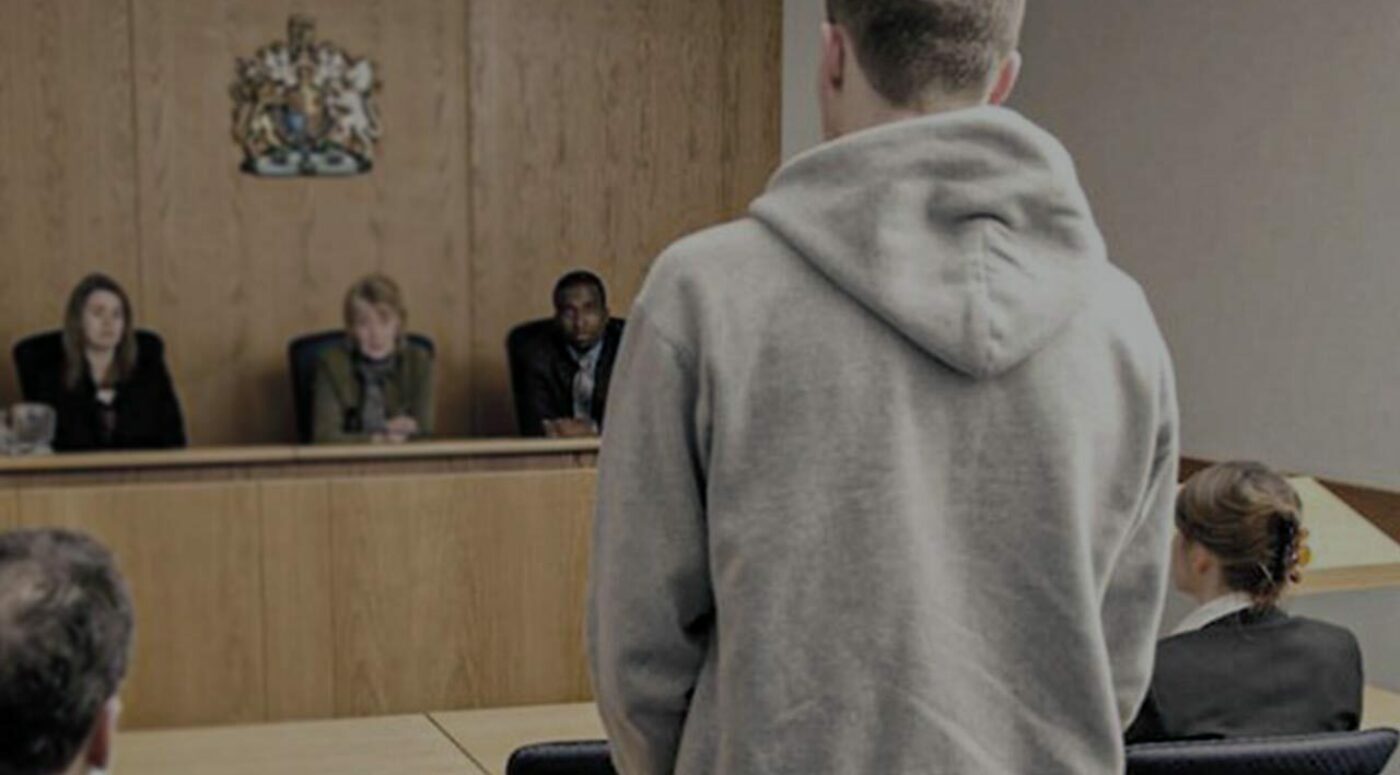

Is false imprisonment the same as kidnap? Can you still be charged even if the offence happened years ago? What kind of sentence will you get if you are convicted for false imprisonment? These are very common questions surrounding the offence of false imprisonment, and if you are facing a charge for such an offence or are already in the process of being prosecuted, you no doubt have countless more. In this article, we give an overview of false imprisonment under UK law (specifically the law governing England and Wales) and answer some of the most common questions we get as expert criminal defence solicitors.
What is the difference between kidnapping and false imprisonment in the UK?
False imprisonment sounds like a very similar offence to kidnapping, and vice versa, so if you are wondering whether false imprisonment is the same as kidnapping, you are not alone. While in some cases the two go hand-in-hand, there are some distinct differences in the two offences and the elements that the prosecution are required to prove in order to secure a conviction.
False imprisonment
False imprisonment is a ‘common law’ offence, which means that there is no legislation governing what constitutes an offence. Rather, judges have honed the definition of false imprisonment over the years through criminal cases.
As it stands, false imprisonment is defined as, ‘the unlawful and intentional or reckless detention of the victim’ and it is understood to fall into the category of offences against the person (this is why false imprisonment is so often charged alongside assault and other such offences).
If false imprisonment was committed in close conjunction with the commission of another crime, such as if someone unlawfully and intentionally detained the victim in a room for a few minutes for the purposes of committing sexual assault against them, then usually whatever the more serious offence against the person will be what is charged. If, however, a victim is detained for several hours or days (or longer), then the crime of false imprisonment will be charged alongside any other offences that are alleged to have been committed.
Note that false imprisonment is a civil offence as well as a criminal one, which is why you may have heard of people being sued for false imprisonment. An example is if a security guard falsely imprisoned an individual for several hours, suspecting them of theft. In that case, a civil claim seems much more appropriate than a criminal one.
Kidnapping
Kidnapping is also a common law offence. The legal definition of kidnapping is: ‘the taking or carrying away of one person by another, by force or fraud, without the consent of the person taken or carried away and without lawful excuse. It must involve an attack on or loss of that person’s liberty’.
Kidnapping is also considered an offence against the person and, like false imprisonment, is often charged alongside other offences that happened during the same period of unlawful behaviour.
In relation to children, there is a closely related offence of child abduction that should also be mentioned. Child abduction, as governed by the Child Abduction Act of 1984, occurs where anyone ‘connected with’ a child under the age of 16 (for example, the child’s parents, guardians, or a person with a residence order or custody) takes or sends that child out of the UK without the appropriate consent. A similar offence exists where ‘other persons’ (non-family members) take or detain a child under the age of 16 without lawful authority or reasonable excuse. These offences are commonly referred to as ‘kidnapping’ despite not being treated exactly the same way in legal terms.
What is the limitation period for false imprisonment?
False imprisonment is a serious indictable offence. As a result, the Crown Prosecution Service (CPS) can prepare a case against you at any time, regardless of the amount of time that has passed between the charging date and the date of the alleged offence. This means that complaints that arise years or even decades after the alleged incident can be investigated and prosecuted if the police and CPS believe there is sufficient evidence to secure a conviction.
Only with less serious cases that are tried only by a magistrate is the CPS required to lodge charges within six months of the date of the alleged offence (per the Magistrates’ Courts Act of 1980).
Is false imprisonment an either way offence?
In short, no. False imprisonment is a serious offence that is tried only at the Crown Court. This makes it an ‘indictable’ offence, not an either way one. The same applies for kidnapping, which is only ever tried in the Crown Court.
Note that even if you are charged with an indictable offence, you are still highly likely to go before a magistrate in the early stages of the case to resolve initial matters. This does not, however, mean that the matter will be resolved there as the case progresses (especially if you plead not guilty and the case needs to go to trial).
What is the maximum sentence for false imprisonment?
The maximum sentence for false imprisonment is life in prison, but generally speaking sentences range between one and 12 years’ imprisonment. In making an assessment on what sentence to give after a guilty plea or verdict, a judge will take into account several factors (related to culpability and harm) that increase or decrease the severity of the crime and, accordingly, the sentence that he or she gives.
Factors that indicate a high degree of culpability include:
- Playing a leading role in the offence, where a group was involved
- Pressuring others to be involved
- Abusing a position of power, trust, or responsibility
- Significantly planning the offence or carrying it out in a sophisticated way
- There being multiple victims
- Deliberately targeting victims based on their vulnerability
- Factors that indicate lesser culpability include:
- Being involved only through coercion, intimidation, or exploitation
- Participation not motivated by personal gain
- It being an opportunistic ‘one-off’ offence with very little or no planning
- Having a limited awareness or understanding of the offence being committed
Harm is judged by taking into account all the evidence presented in court, as well as statements from the offender and the victim as to harm that was intended or suffered. Physical, psychological, emotional, familial, financial, and other factors are all relevant to the assessment.
With these factors in mind, and others as presented at trial, the judge will come to a decision on the appropriate sentence. Note that even if a life sentence is avoided, a guilty party is still likely to face a number of years in prison for all but the least serious of offences.
Can you reduce a sentence with a guilty plea?
It is possible to reduce a sentence with a guilty plea. The maximum that a sentence can be reduced by a guilty plea is one third (so, if you were to receive a sentence of 9 years for the offence, you would receive 6 years with a guilty plea).
The rationale here is to ensure that those who are guilty and who are very likely to be proven guilty do not waste the court’s time in going through a full trial. Trials are exceedingly expensive for the CPS to prepare and for HM Courts and Tribunals Service to administer. The rules exist to dissuade ‘chancers’ and ensure that resources are spent only where appropriate.
This rule also ‘rewards’ those who take responsibility and show remorse by pleading guilty with a reduced sentence.
What are exemplary damages for false imprisonment?
Exemplary damages only apply in the civil context. As mentioned, it is possible for someone to sue in the civil courts for suffering false imprisonment. That said, exemplary damages are very rarely – if ever – awarded in the UK, and the notion is much more common in the United States. The purpose of exemplary damages nonetheless is to punish the liable party and make an example of them to dissuade others from committing the same wrongs.
Where to get more help
If you or someone you care about has been charged with false imprisonment, it is imperative that you get expert legal representation on your side as soon as possible. The investigation process for false imprisonment can be gruelling, involving intrusions into your personal and professional life, depending on the circumstances of the case, and as such you need someone on your side who understands the proper processes and rules that must be followed. For a free consultation to better understand your next steps, get in touch with the team at Stuart Miller Solicitors today.
OUR COMMITMENTS TO YOU:
-
Responsive
A legal expert will consult you within 24 hours of making an enquiry.
-
Empathetic
We will always treat you with trust, understanding and respect.
-
Specialised
Your case will be handled by an expert who specialises in your type of offence.
-
Proactive
We will take early action to end proceedings as soon as it is practically and legally possible to do so.
-
Engaged
You will be kept updated on your case at all times. We will provide a named contact available to answer your questions.
-
Caring
We understand this is a difficult and stressful time for you and your family. Our team will support you every step of the way.
-
Tenacious
We will never give up on your case. We fight tirelessly to get you the best possible outcome.

